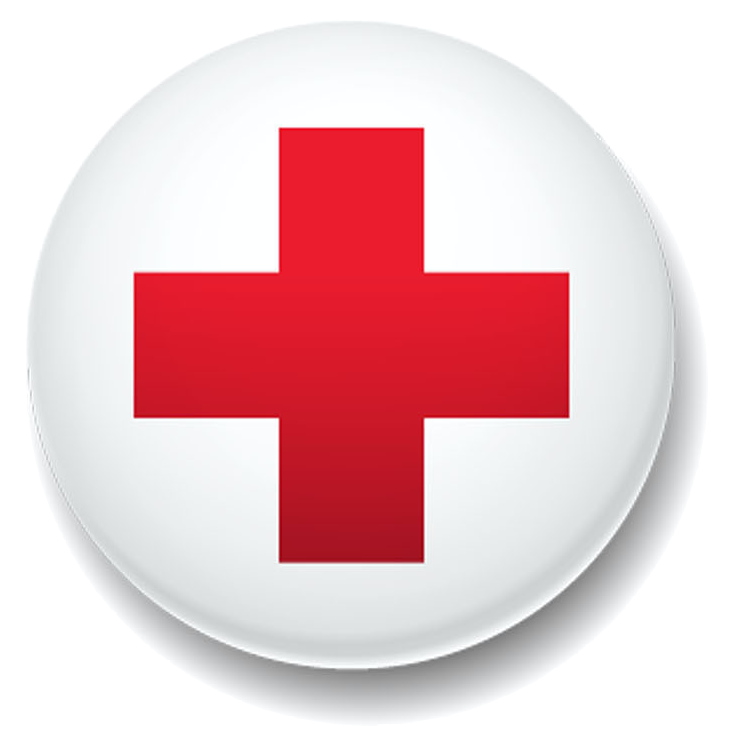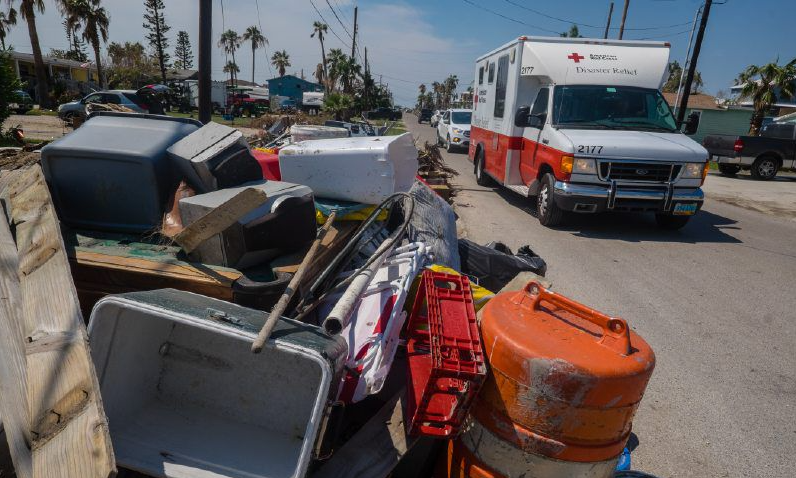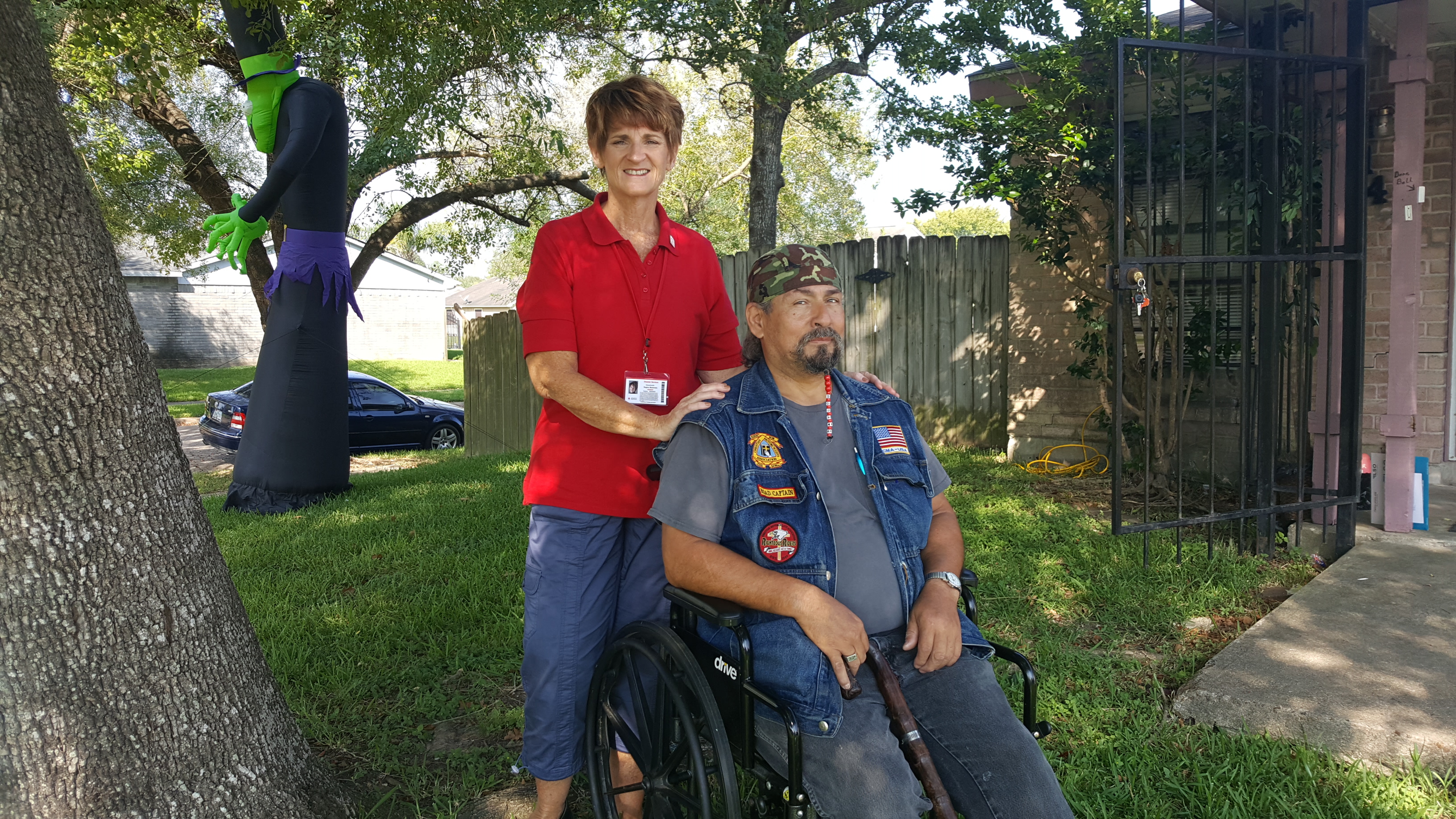By Los Angeles Region CEO, Jarrett Barrios
On August 25, Hurricane Harvey made landfall near Rockport, Texas, packing devastating winds, a powerful storm surge and torrential rains. That was just the beginning for millions of people in Texas and Louisiana, as the deadly storm lingered for days, inundating communities with relentless rainfall that broke records and caused catastrophic flooding.
And for the Red Cross, it was just the beginning, too. Over the next eight weeks, two Category 5 storms, Irma and Maria, would wreak havoc on Florida, Puerto Rico and the U.S. Virgin Islands, and wildfires in northern California would cause damage unparalleled in the state’s recent history and the greatest loss of life since Minnesota’s Cloquet Fire of 1918.
Even before Harvey made landfall we were preparing to launch a massive response. We mobilized thousands of trained disaster volunteers as well as trailers of supplies to support 10 mobile kitchens, and more than 200 emergency response vehicles—over half of our national fleet. One after the next, the disasters came—after the eight weeks, between the four major disasters, we had sheltered more individuals than we had in the whole of the last five years! In all, we served more than 11.5 million meals and snacks. If I can say so myself, the way in which we were able to respond as a humanitarian organization to this unprecedented series of disasters was effective and impressive!
Since Harvey struck, we’ve learned a whole lot, too. Thousands of compassionate volunteers and employees have worked day and night to support a huge sheltering operation for the tens of thousands forced from their homes. And, while many local volunteers stepped forward in the days and weeks that followed, most volunteers—particularly those with supervisory roles—were deployed from other parts of the country.
 Shortly after the storm, we launched a series of “just-in-time” pre-deployment trainings to equip new volunteers with the skills and tools necessary to deploy to large-scale disaster relief operations. Our goal was clear: no matter for how long our help would be needed, we wanted to make sure we had the resources, in the form of dedicated volunteers, ready to extend a helping hand. In all, 300 staff and volunteers deployed from LA—a personal best for us! And of course, having trained LA volunteers also enhances our own readiness, should we have a major disaster of our own.
Shortly after the storm, we launched a series of “just-in-time” pre-deployment trainings to equip new volunteers with the skills and tools necessary to deploy to large-scale disaster relief operations. Our goal was clear: no matter for how long our help would be needed, we wanted to make sure we had the resources, in the form of dedicated volunteers, ready to extend a helping hand. In all, 300 staff and volunteers deployed from LA—a personal best for us! And of course, having trained LA volunteers also enhances our own readiness, should we have a major disaster of our own.
These new volunteers are our lifeblood. And now, we are working to continue theirs, and all our volunteers, education. To accomplish this, we’ve again gone into planning mode, taking the necessary steps to ensure we have enough man-power to continue to assist with the current relief operations, the next big emergency or disaster, and every one after that.
This December, our Disaster Cycle Services Team is showing its commitment to developing the leadership capabilities of our volunteers, by offering two days of training at the International School in Burbank, known as the Regional Supervisor Academy. Red Crossers from across our region will gather to advance their skills, train in a particular function and explore new areas of service.
When it comes to all the roles our volunteers fill, supervisory roles are pertinent to our service delivery and essential for putting our mission into action. But, experienced volunteers also bring a wealth of knowledge to the table. Many of our volunteer supervisors have been on multiple deployments, they have seen how the work of the Red Cross can help to change lives, and they are willing to share their tricks of the trade with our newer volunteers. Essentially, they keep the fined tuned machine that is the American Red Cross running—from region to region, state to state and throughout disaster after disaster.
By attending the Los Angles Region’s upcoming training weekend, volunteers will gain valuable skills, critical for managing others and for carrying out standard operating procedures nationwide, during times of disaster. And, those who attend will be making a commitment to our preparedness as a Red Cross Region, to reinforce our readiness for the next big emergency or disaster—in Los Angeles, across the country, or around the world.
At this year’s Regional Supervisor Academy, over the weekend of December 9th and 10th, classes will be offered in Casework, Shelter Management, Disaster Public Affairs, Psychological First Aid and more. The training weekend is free of charge and breakfast and lunch will be provided. If you’d like to inquire about attending, please e-mail: DSTraining.LosAngeles.CA@RedCross.org.
Jarrett Barrios is the Chief Executive Officer at the American Red Cross Los Angeles Region. But, above all, Jarrett Barrios is a humanitarian with more than 20 years of experience helping people in need throughout the United States and Cuba.
To learn more about Jarrett Barrios or the America Red Cross Los Angeles Region, visit RedCrossLA.org.





